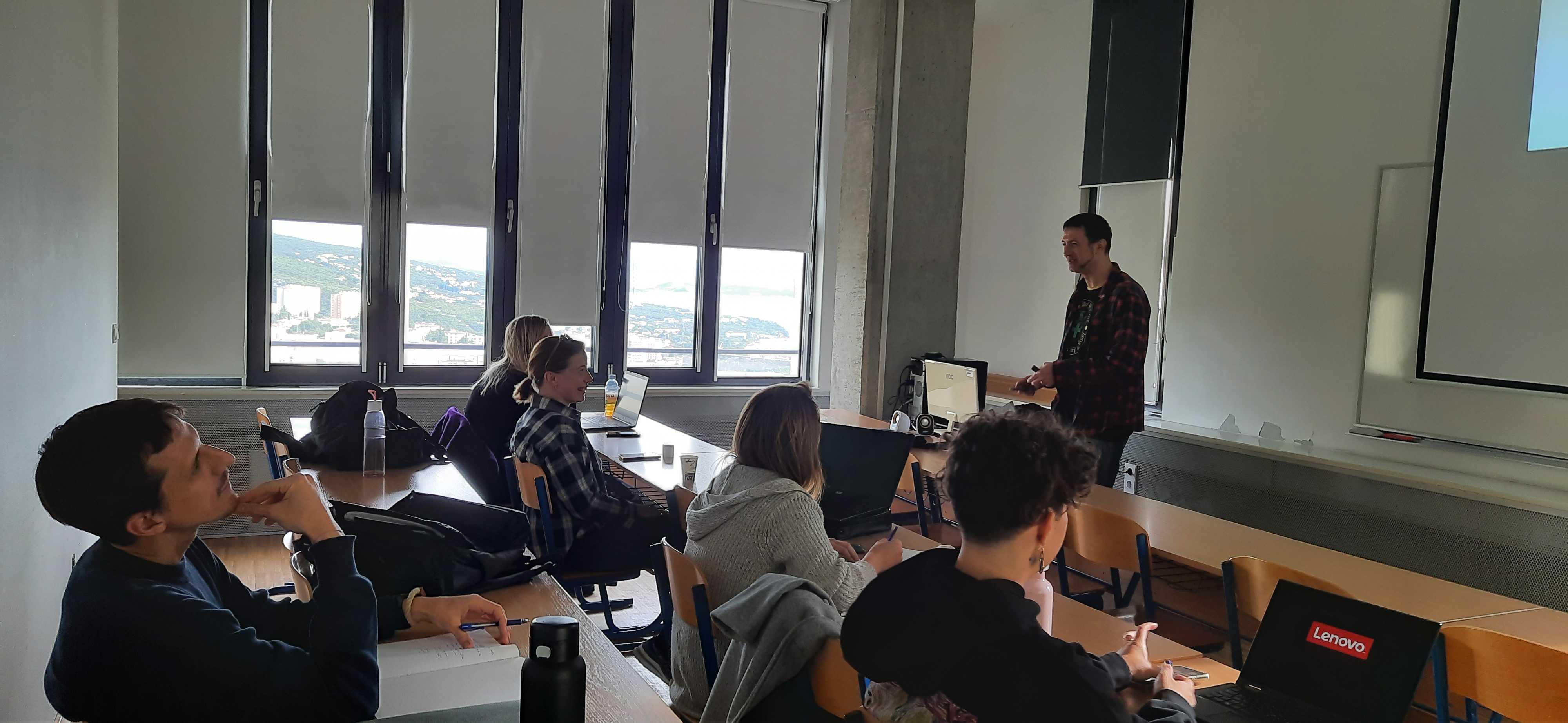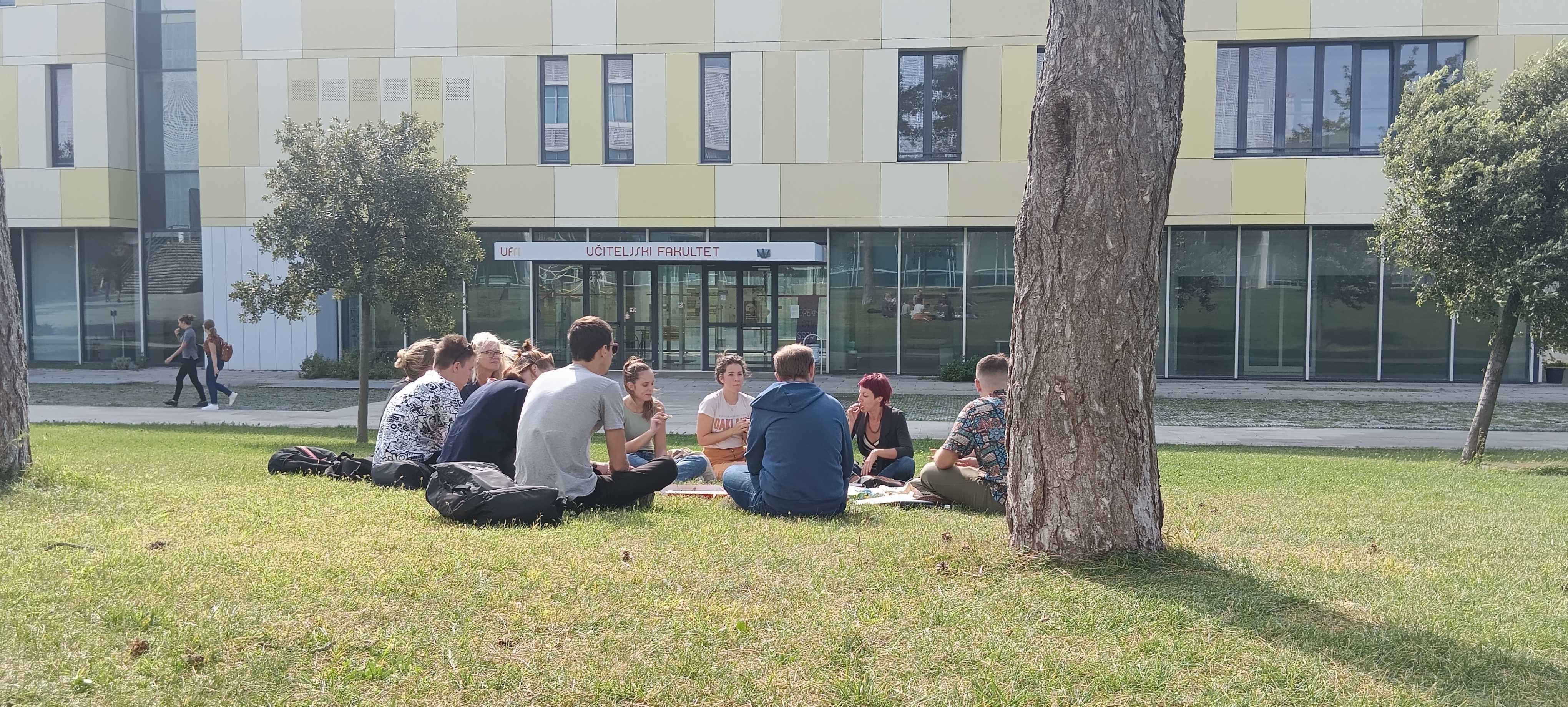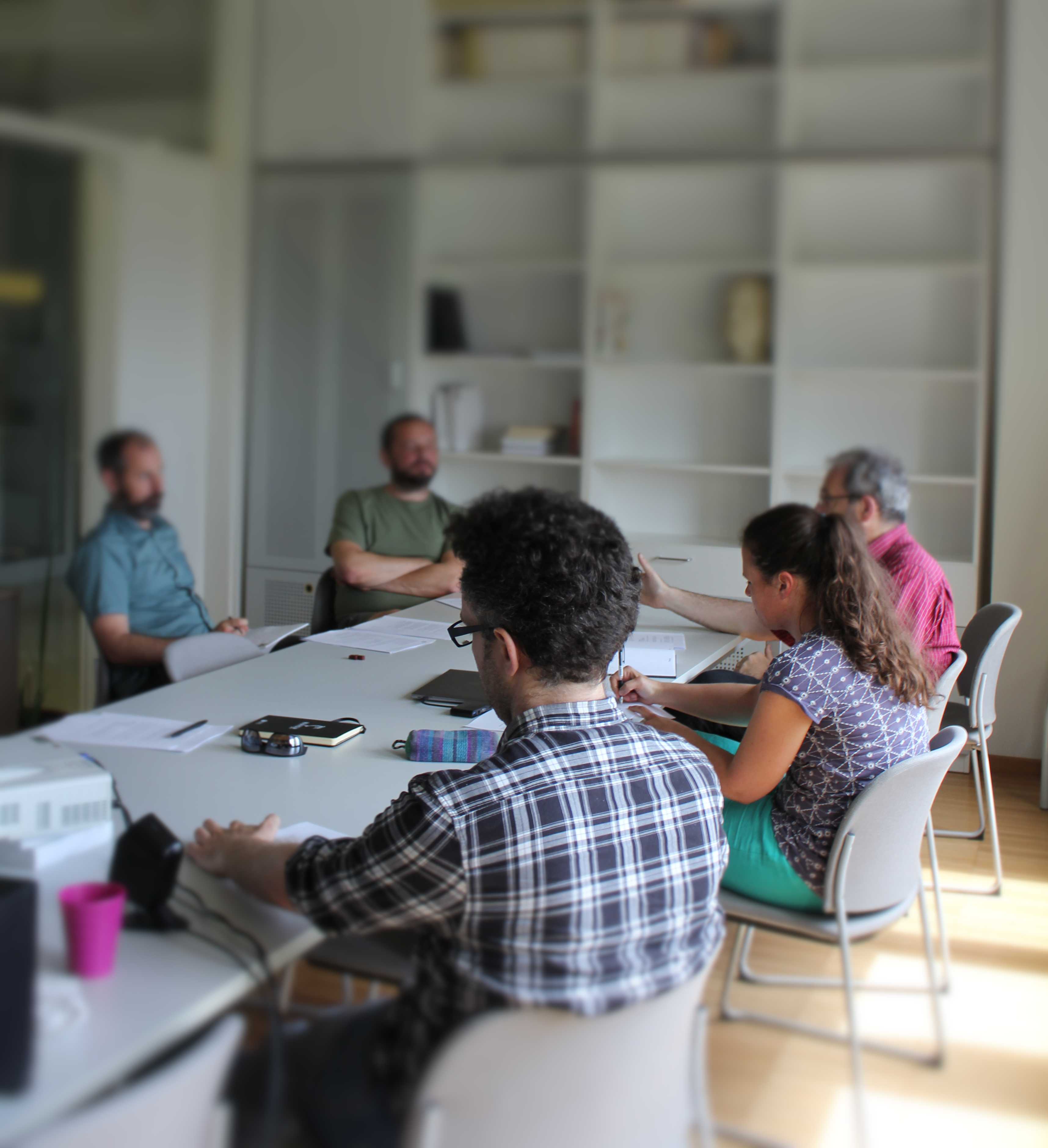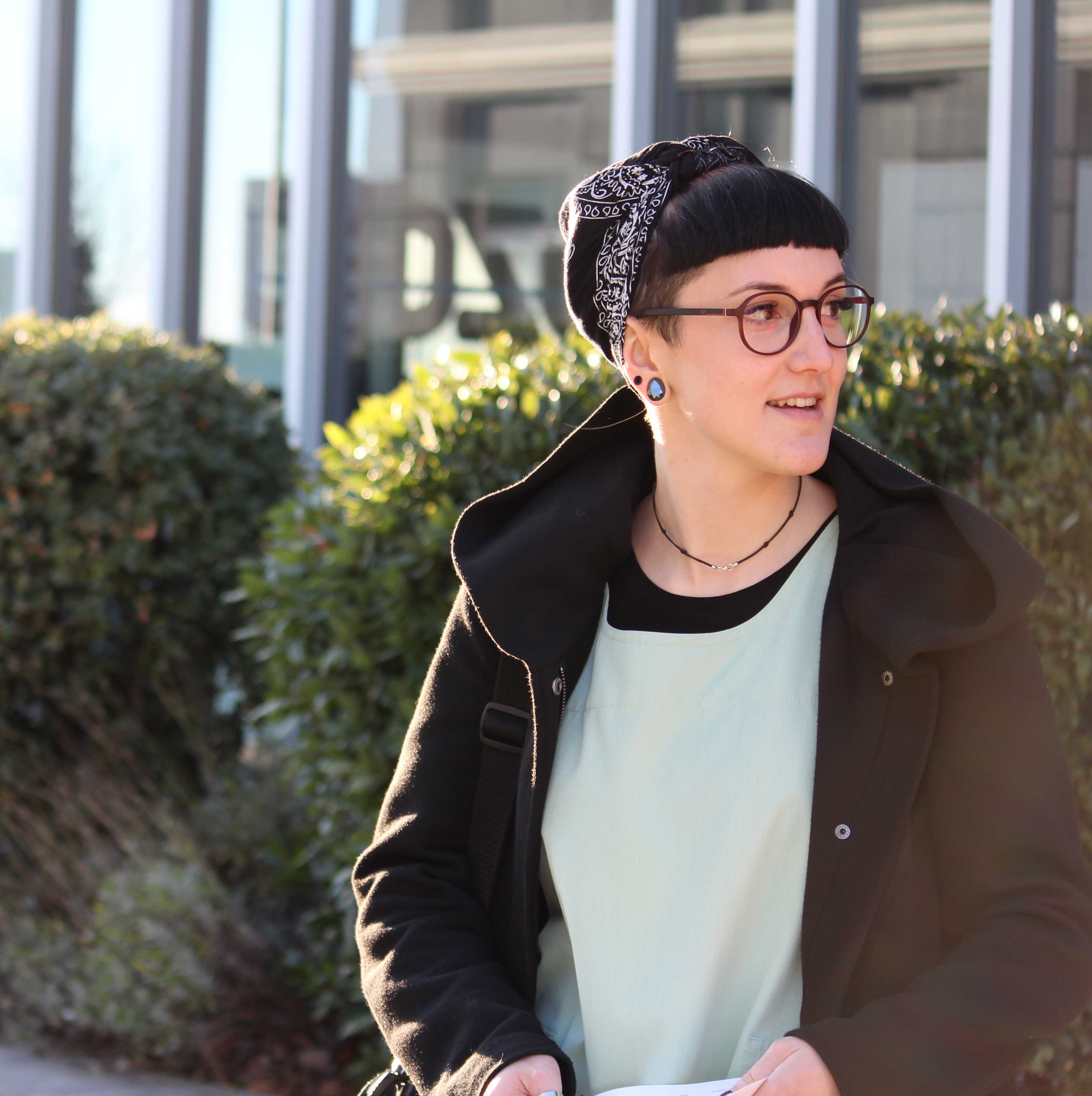Programme Overview
Find out how our Cognitive Sciences Masters programme will help you achieve your goals.
Cognitive sciences are the interdisciplinary study of mental processes that influence the behaviour of biological organisms and artificial systems.
Our Masters programme has been developed to guide and gradually empower you to conduct independent research and synthesize approaches, methods, and knowledge from the different disciplines and perspectives within cognitive sciences.

We will support you in becoming a confident and rigorous researcher, whether you want to continue to postgraduate studies in cognitive sciences, one of its disciplines or into science-based industry.
Programme Structure
In the first year, you will acquire a strong foundation in the methods and topics in cognitive sciences. During an intensive introductory course, you will be able to choose different taught elements to complement your specific background and knowledge based on your undergraduate degree. Subsequent innovative courses and modules will provide you with theoretical and methodological knowledge and skills in an interdisciplinary setting.
Building on this foundation, in the second year you will work closely with a supervisor of your choosing and will design and conduct your own research project. Your growth into an independent and well-rounded researcher will be complemented by carrying out a science communication project related to your research topic as well as actively participating in interdisciplinary research discussions.
Tailor your degree
Our Masters programme offers various ways in which you can customise your study experience both in the first and second year of study.
The introductory course offers different routes into the programme – you choose different course elements to complement your background and training. Subsequent mandatory courses are taken by all students on the programme but involve several elements that are adjusted to suit different areas of interest. In addition, every semester you choose one elective course from a range of courses that either offer technical research skills, broaden the fields of study within cognitive sciences or deepen your knowledge in areas covered in the mandatory courses.
Your Masters degree – your research! In the first year of study, you choose two short projects to work on. You can use these projects to explore different research areas and disciplines. In the second year, you closely work with a supervisor of your choice on a selected research topic for your Masters thesis.
Course Information
Our Academic Year
Our academic year is organised into two semesters, separated by a 5-week long summer break (usually end of July to end of August). Each teaching semester is 15 weeks long (classes only take place during that time), and the rest of the time is dedicated to revisions and exams.
The winter semester goes from the start of October to the end of January (exact dates are confirmed for each year in advance), with around two weeks (or a bit longer) off for the holiday season in December/January.
The summer semester goes from the start of March to the beginning or middle of June (exact dates are confirmed for each year in advance), with a short time off for holidays in March/April.
The main exam dates are in February (classes from winter semester), and from the middle of June to the middle of July (classes from summer semester). There are additional exam dates in April (courses from winter semester) and at end of August/start of September (courses from winter and summer semester).
First Year Courses
Introduction to the Disciplines and Work in Cognitive Sciences
Classes
Seminars: 48 hrs
Lectures: 48 hrs
Practicals: 0 hrs
Assessment
- Class participation
ECTS
7 Credits
Content
The course is divided into a compulsory component, an elective module (you choose one out of two modules), and elective elements (you choose two out of four elements). At the beginning of the course, our First Year Tutor will help you figure out how to choose the elective parts of the course.
Compulsory component
Introduction to the work of cognitive sciences (discipline overview, levels of explanation in cognitive sciences), interdisciplinarity in cognitive sciences, literature and its use in different disciplines within cognitive sciences.
Elective modules
Introduction to empirical cognitive sciences: Introductory statistical methods, introduction to empirical research methods.
Introduction to the philosophy of cognitive sciences: Foundations of philosophy of cognitive sciences, introduction to philosophical research methods, introduction to philosophy of science.
Elective elements
Cognitive Psychology: Introduction to perception and attention, learning and memory, language: understanding, production and categorization, judgement and reasoning.
Neuropsychology and Cognition: Introduction to the structure and functions of the nervous system, brain, and behaviour: neural mechanisms of emotions, learning, memory, language and consciousness, neurocognitive networks and connectome.
Comparative Cognition: Introduction to theories in comparative cognition, methodological approaches, main research areas and questions, concepts and issues.
Critical history of cognitive science and its methods: Introduction to the debates that marked the development of cognitive sciences, cognitive sciences and the cultural context of the late 20th century.
Objectives
This is an intensive, introductory course that runs over the first 6 weeks in semester 1. The course has three objectives: i) to introduce you to the work in cognitive sciences, ii) to enable you to complement your knowledge from your undergraduate training, and iii) to introduce you to the different ways of learning and teaching involved in the Masters programme.
Additional Teaching Staff
Dr. Ivan Flis Prof. Mladenka Tkalčić Prof. Predrag ŠustarDr. Sanda Pletikosić
Dr. Ljerka Ostojić Dr. Edward Legg Dr. Zdenka BrzovićInterdisciplinary Modules in Cognitive Sciences 1 & 2
Classes
Seminars: 33 hrs
Lectures: 86 hrs
Practicals: 0 hrs
Assessment
- Class participation
- Essay
- Exam
ECTS
15 Credits
Content
Interdisciplinarity vs. multidisciplinarity in cognitive sciences, numerical cognition, visual cognition, judgement and reasoning, rationality, individual differences in cognition, metacognition, consciousness, Theory of Mind, perception and social cognition.
Objectives
You will gain knowledge of selected topics from cognitive sciences from a disciplinary and interdisciplinary perspective. In addition to interactive lectures, we will have interdisciplinary moderated discussion groups. For some of these, your lecturers will select the literature, for others you will be able to select topics and papers of your interest. In addition, we will have invited lecturers for specific topics.
Additional Teaching Staff
Dr. Asmir Gračanin Prof. Dražen Domijan Dr. Edward Legg Dr. Valnea ŽauharDr. Sanda Pletikosić Tončić
Prof. Mladenka Tkalčić Dr. Anna Hughes (University of Essex) Prof. Pavle Valerjev (University of Zadar)Dr. Mia Šetić Beg (Catholic University of Croatia)
Dr. Ivan Flisplus invited lecturers for specific lectures and/or discussion groups
Empirical Research Methods 1 and 2
Classes
Seminars: 48 hrs
Lectures: 48 hrs
Practicals: 0 hrs
Assessment
- Class participation
- Exam
- Seminar Paper
- Project
ECTS
12 Credits
Content
Theories and models in cognitive science, experimental designs, non-experimental designs, measurement theories, neuroscience methods, programming cognitive experiments, online testing, Open Science tools for planning and designing empirical research.
Objectives
The aim of the course is to prepare and train you for (independent) research in cognitive sciences by working through different theoretical approaches in the study of the mind and methods of model construction and the diversity of methodological approaches and methods in cognitive sciences. In specialized workshops, you will be able to practice integrating the acquired knowledge.
Statistics
Classes
Seminars: 18 hrs
Lectures: 18 hrs
Practicals: 0 hrs
Assessment
- Class participation
- Seminar Paper
- Written and Oral Exam
ECTS
5 Credits
Content
Introduction to R, modelling continuous data (linear models with 1 and 2 parameters, use of categorial predictors, interactions), information curve modelling (polynomial models), modelling of categorical data (logistic regression), modelling continuous data from research with ‘pseudo-replications’ (repeated measures ANOVA, hierarchical linear modelling), modelling the pattern of relationships between multiple variables (mediation, PATH analysis, SEM).
Objectives
The aim of the course is to enable you to work with empirical data and plan and perform statistical analyses. During this course, we will, wherever possible, use open-source software for all data manipulations and analyses to ensure that you can transfer the acquired skills and knowledge to your future work.
Organiser
Dr. Petra AnićAdditional Teaching Staff
Dr. Marko TončićEthics
Classes
Seminars: 30 hrs
Lectures: 15 hrs
Practicals: 0 hrs
Assessment
- Seminar paper
- project
ECTS
6 Credits
Content
Introduction to ethics in philosophy, ethical issues in working with different participant populations, ethical issues in research methods and data analysis, data management and sharing, General Data Protection Regulation (GDPR), dissemination of results, use of results of empirical research to create public policy, use and misuse of empirical research results: historical and contemporary perspectives, ethical issues in the scientific community, visibility of minority researchers and their work, diversity in the research community, scientific colonialism.
Objectives
We will work through ethical questions in cognitive sciences research and discuss situations and components that you are likely to encounter in your future research career.
Organiser
Ljerka Ostojić
Additional Teaching Staff
Elvio Baccarini
Ivan Flis
Ben Farrar
Rotation Project 1 and 2
Classes
Seminars: 15 hrs
Lectures: 5 hrs
Practicals: 0 hrs
Assessment
- Seminar Paper
- Project
ECTS
9 Credits
Content
The specific content of the rotation project will be determined by the different topics and research questions offered in a particular year.
Each term, we will organise workshops that will help you with specific aspects of planning and designing research (e.g., registrations, data management, meta-analyses).
Objectives
The aim of this course is to recognise the importance of early stages of research projects. To this end, you will choose one of the offered topics and will, independently and with your supervisor, plan and design a study. For empirical projects, this includes planning statistical analyses and may include piloting the procedure, but does not include main data collection.
At the same time, rotation projects offer you the opportunity to learn about the different research topics and interests of the researchers involved in the study programme, to try out a project that may be in a different subdiscipline of cognitive sciences than the one you have been trained in, and to test out different research areas and topics before you choose your Masters thesis project.
Organiser
Dr. Ljerka OstojićAdditional Teaching Staff
Dr. Benjamin Farrar
Dr. Antica Čulinaplus additional invited researchers for specific workshops
Second Year Courses
Journal Club 1 and 2
Classes
Seminars: 16 hrs
Lectures: 0 hrs
Practicals: 0 hrs
Assessment
- Class participation
ECTS
4 Credits
Content
Every two weeks, we will meet to discuss a paper that has been chosen by a student, who will also briefly present it at the start of the discussion.
Objectives
This course will introduce you to the style of seminars known as journal clubs, whose primary purpose is to present and discuss current literature.
Science Communication 1 and 2
Classes
Seminars: 16 hrs
Lectures: 6 hrs
Practicals: 0 hrs
Assessment
- Class participation
- Project
ECTS
8 Credits
Content
Science communication, citizen/community science, science communication tools, social media, digital presentation tools, multimedia, self-assessment of presentation and project, project management.
Objectives
You will develop skills in science writing and reviewing, as well as general science communication skills and learn how to adapt content and methods of communication to different audiences.
Organiser
Ljerka Ostojić
Additional Teaching Staff
Invited researchers and science communicators for specific workshops
Professional Development
Classes
Seminars: 12 hrs
Lectures: 0 hrs
Practicals: 0 hrs
Assessment
- Class participation
ECTS
2 Credits
Content
Academia and industry, CVs, transferrable skills, social networks, Research and Development, Data Science.
Objectives
You will familiarise yourself with different professional developmental tools, and work on developing tools for your own future career. This course will involve an industry day with our industry partners.
Organiser
Ljerka Ostojić
Additional Teaching Staff
Invited lecturers for specific workshops
"I was impressed by the modern outlook of the proposed courses, as well as the emphasis on teaching students the concepts of Open Science."
From our international review (part of the official accreditation procedure

Elective Modules
Related Pages
Teaching Staff
Our team is passionate about research and teaching. Use this page to find out who we are and explore our research interests.

Admissions
Learn about applying to this programme.
